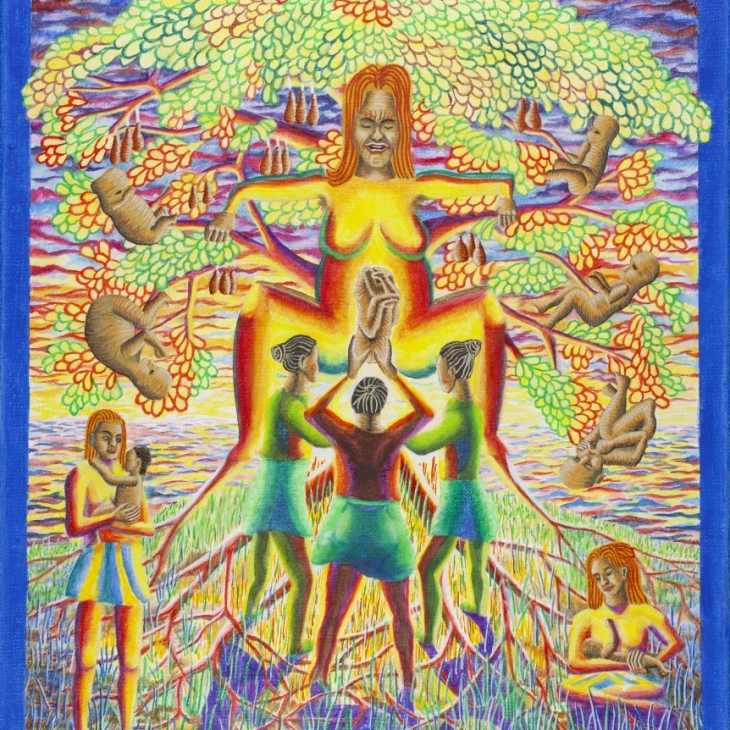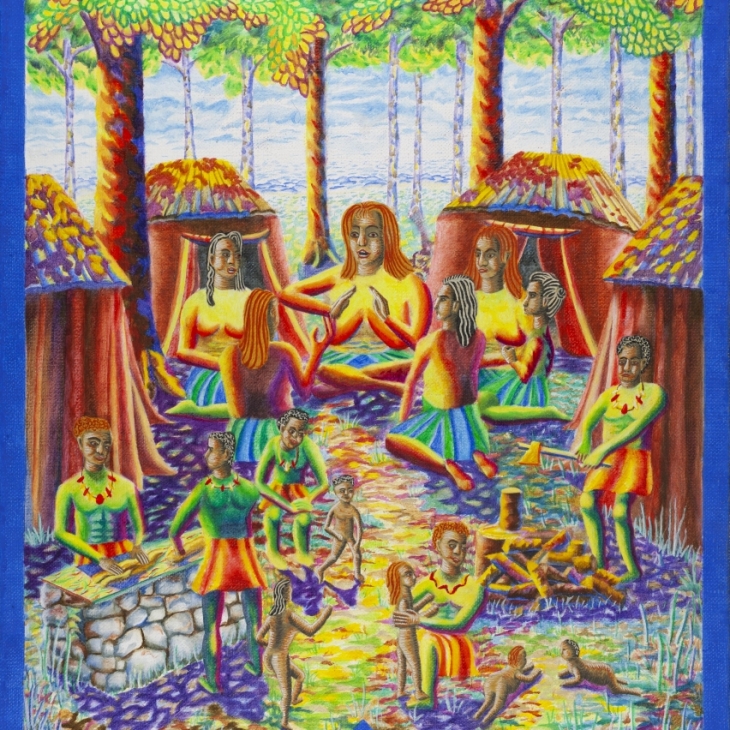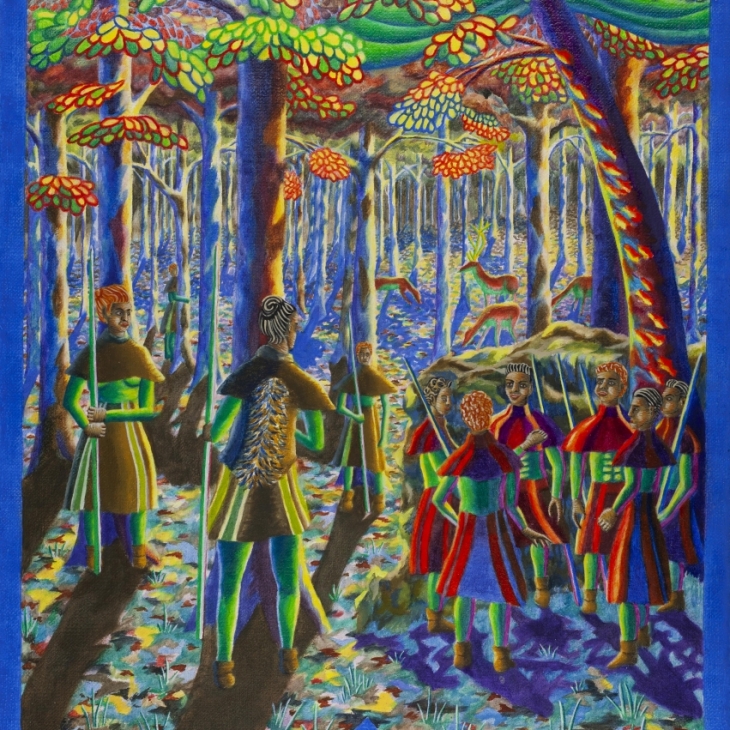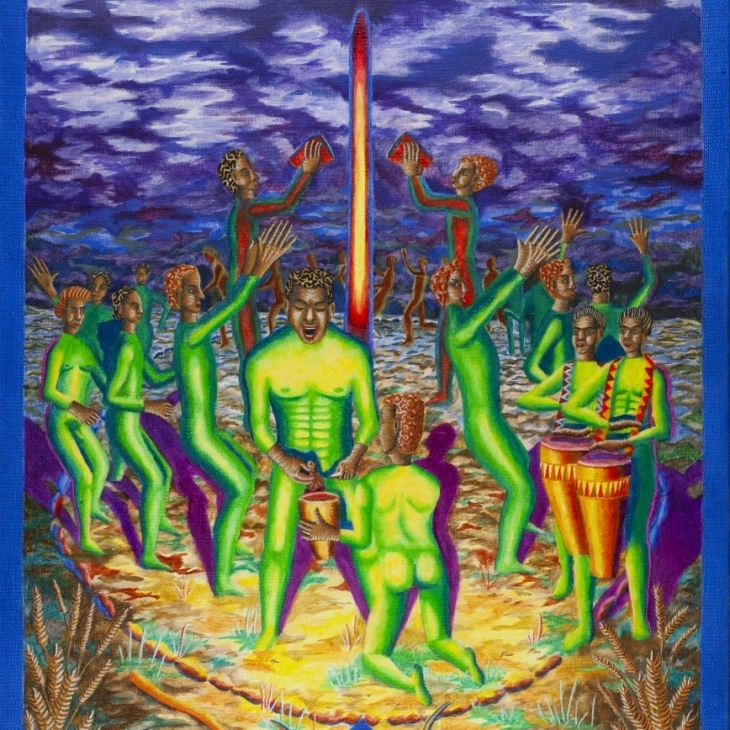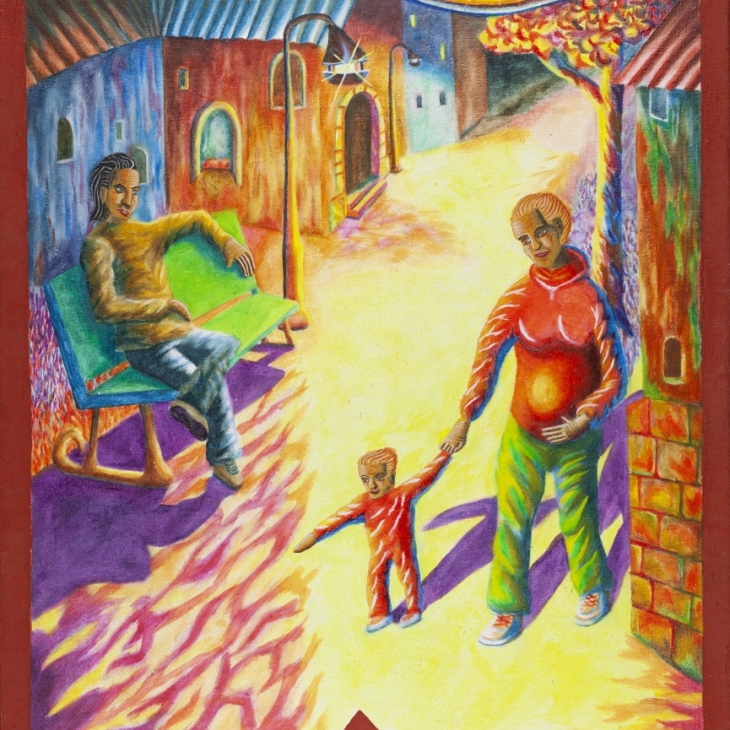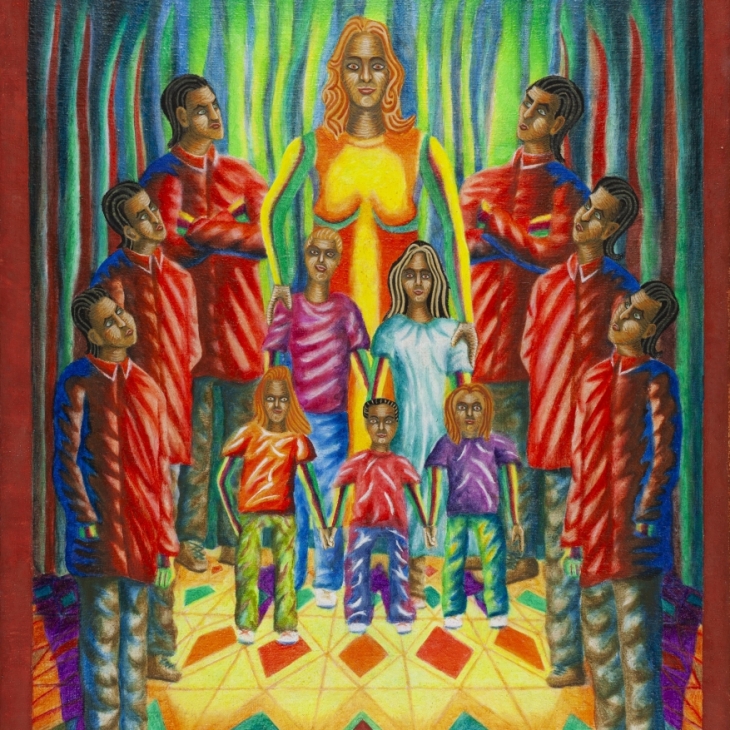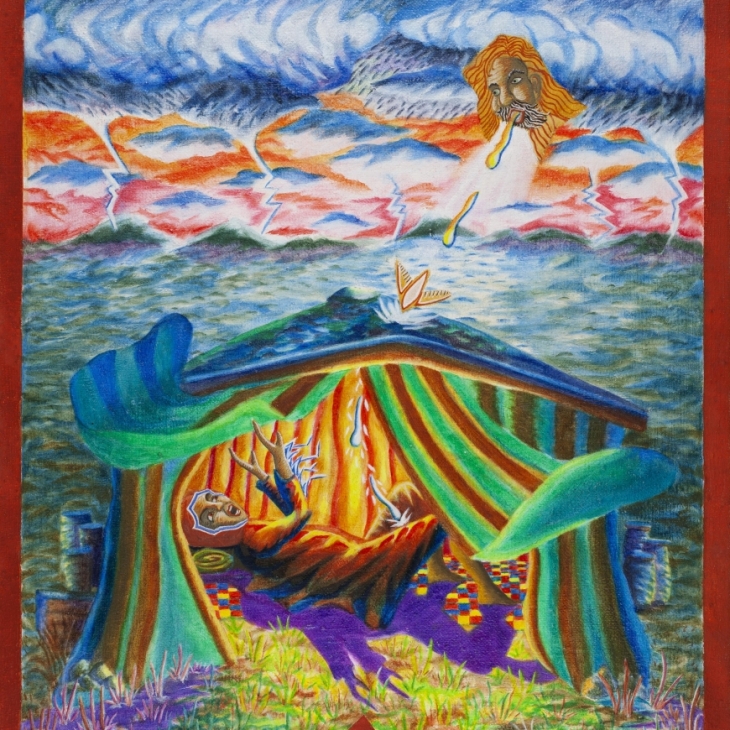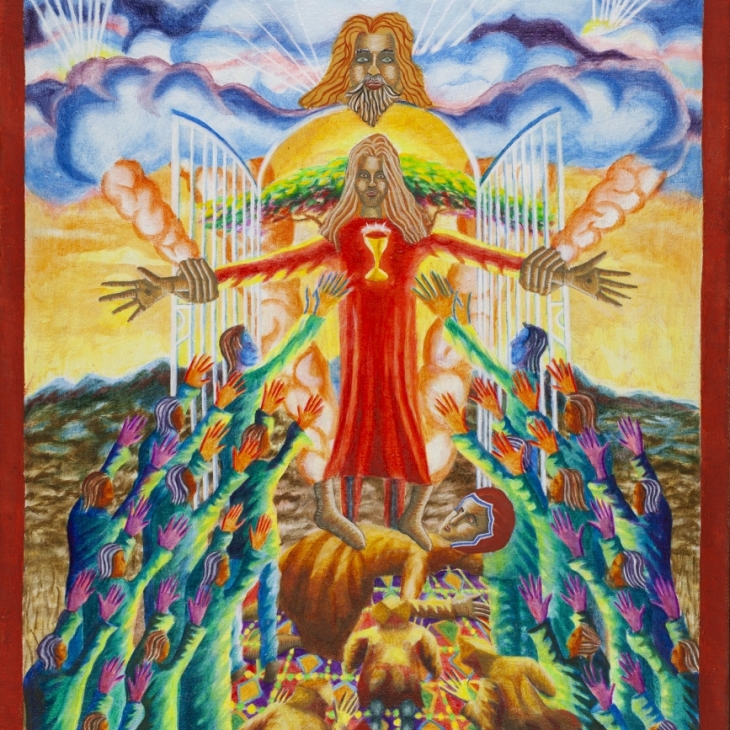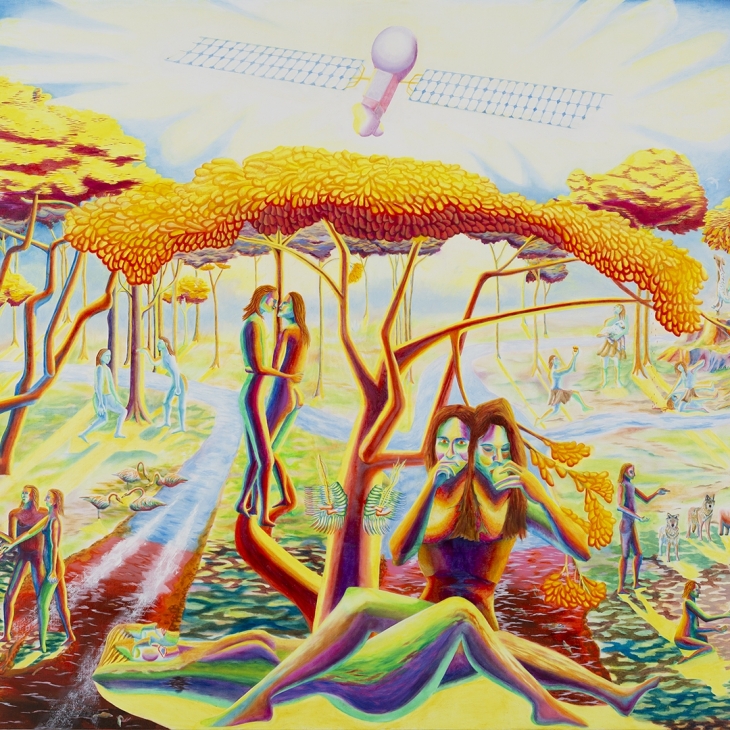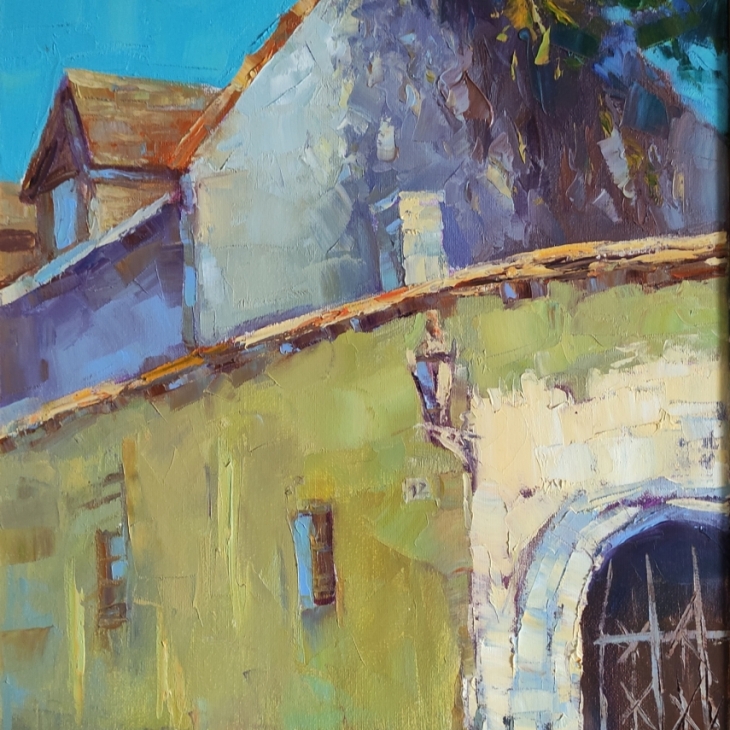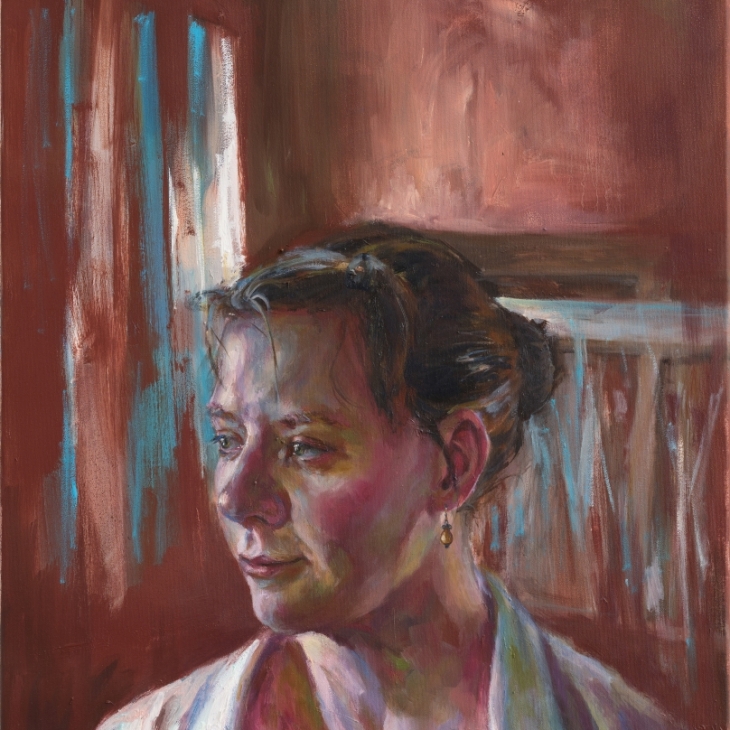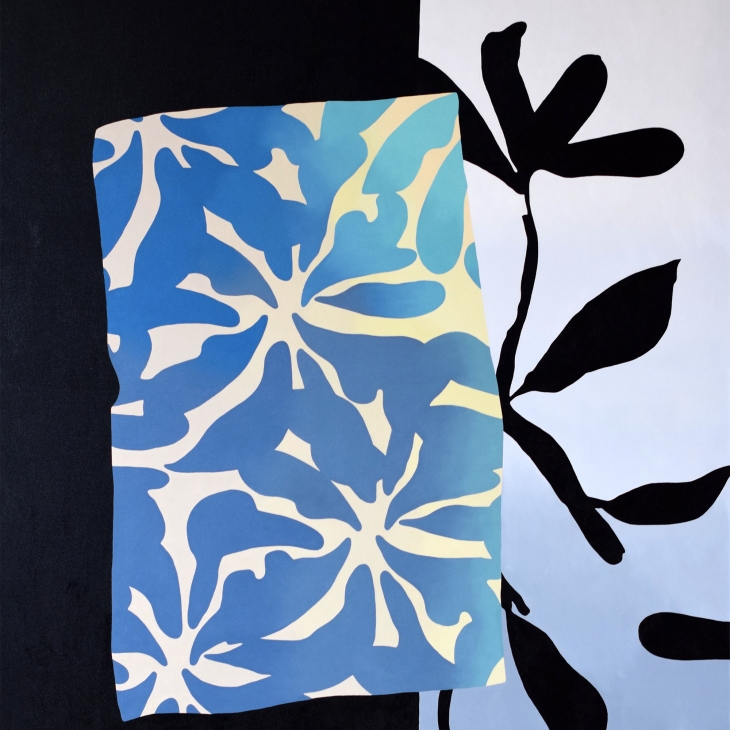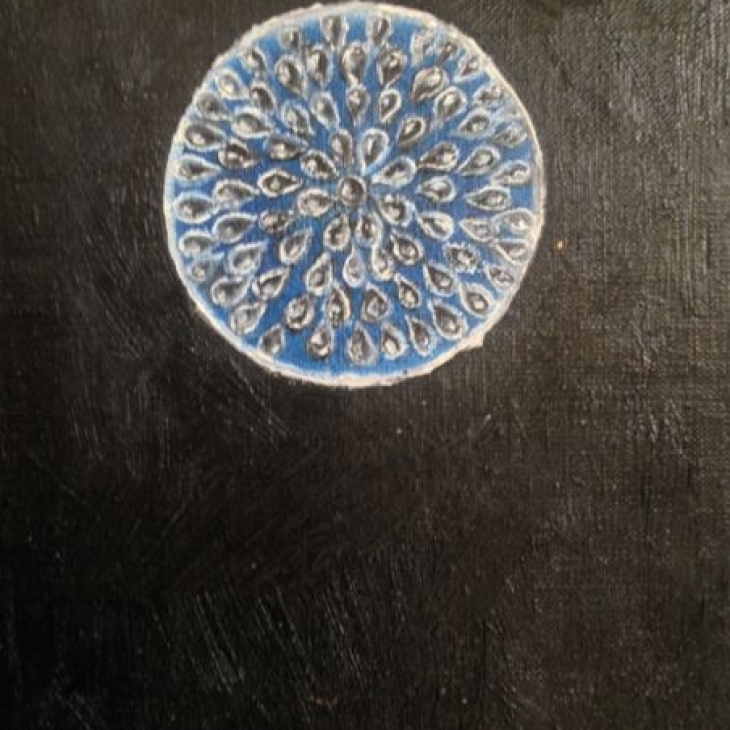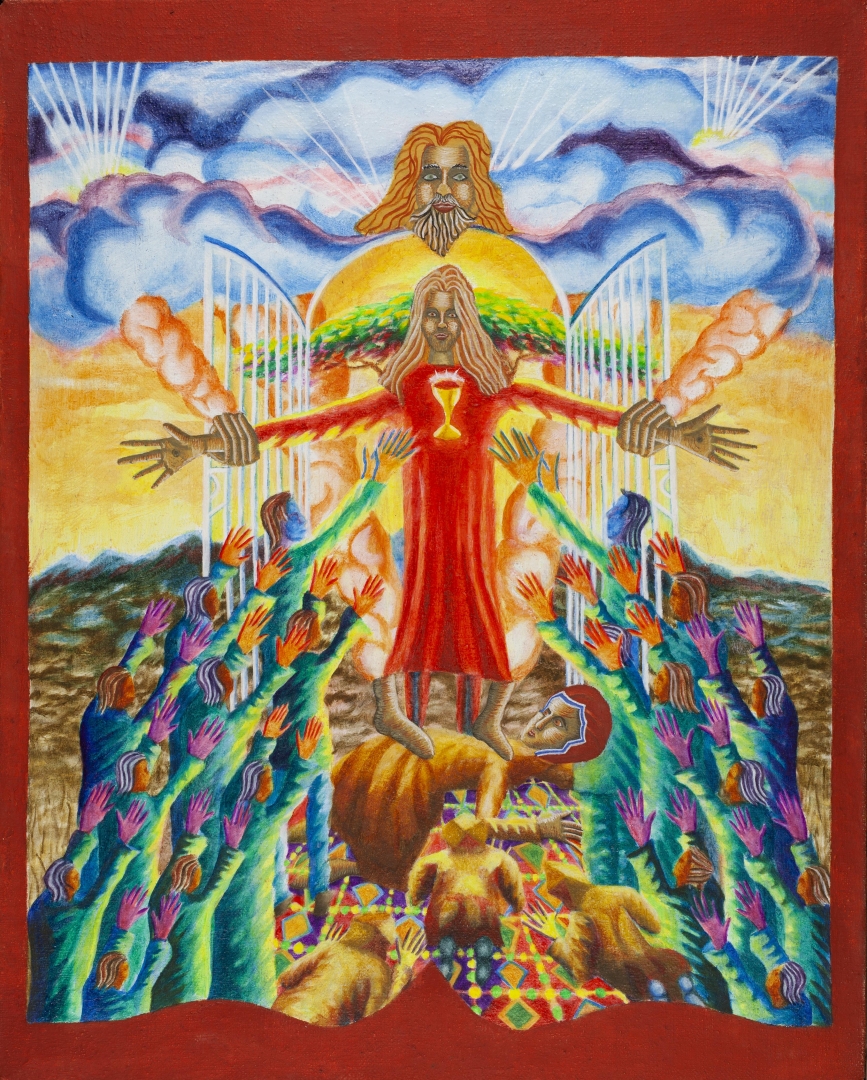Valluse. Blue chapter, Part 8, 2020
Oil, egg tempera, linen
“Valluse is a fairytale I wrote together with Anni Tuomi. To the fairytale I have painted eight painting illustrations which have the same name as the chapters of the book, the Blue chapter Part 1–4 and the Red chapter Part 1–4. The artwork has been exhibited two times. Firstly in May 2021 at the Academy of Fine Arts Helsinki, MFA graduation exhbition ”Kuvan Kevät 2021”. Secondly in September 2021 at mine and Teresa Kari’s exhibiton ”Sub Rosa”, in the Academy of Fine Arts Helsinki’s gallery Project Room. The inspiration to write and paint the fairytale Valluse starts from my wondering why I have been feeling womb envy during my life. I hadn’t heard almost any talk about it before I started to do my research on it. Most societies and cultures don’t talk about the feeling of womb envy. I started to research different reproduction theories through our history and prehistory by reading Marilyn French’s book ”From Eve to Dawn: History of Women in the World, Volume 1” and Julia Stonehouse’s ”The Misconception files”. After reading these books I started to wonder what do different societies and cultures want to achieve through their reproduction theory? How can a society use a reproduction theory to control its population and divide power between genders? During this research I started to write the fairytale Valluse with my partner Anni Tuomi. We are trying to give clues of answers to these questions above. A short summary of the fairytale Valluse Valluse is a fairytale about a matriarchal hunter gatherer village with the name Valluse located on a small island. The people in the village Valluse live in a polygamious structure, where the connection between the intimate intercourse and the pregnancy have not been discovered. Instead a pregnancy is seen as a miracle. When agriculture started they got food in abundance and they stopped practicing their glorious hunting traditions. One consequence of their new lifestyle as farmers was that more and more babies were born and survived to become adults. Therefore a new reproduction theory occured that the male gives water to the prospective mothers seed so it can start to grow. At that point the males, which are called brothers in the story, make a proposal that they should introduce monogamous relationships into the village. Therefore the brothers would know which kid is also his and he could get the title father. Though the mothers did not see any benefit of monogamous relationships, and rejected the brothers proposal. That is why a great frustration of the meaningless emerged into the brothers lives, who also felt an endless sorrow over the loss of being a hunter. The mothers try to find a solution to help the brothers to solve their frustration. They introduce athletic games, where the brothers can fill their lives with honor and meaning. However the brother’s frustration emerges and one day they move out from the village of Valluse, to create their new village Arve. The fairytale culminates in the new village Arve, where a monogamous, patriarchal and christian cult is established. You can listen or read to the full story at nilstitus.com”

